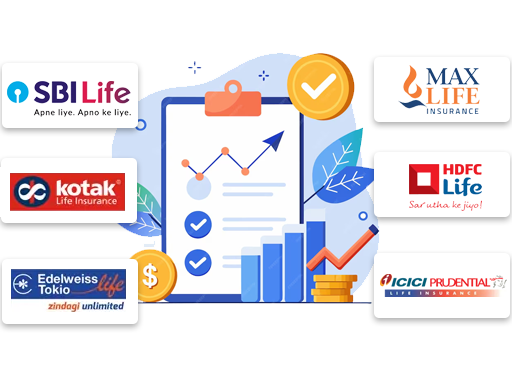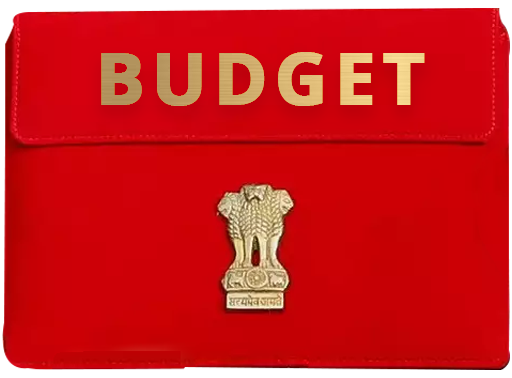- Life Insurance Premium
- Factors Affecting Policy Premiums
- How To Pay The Premiums

Himanshu is a content marketer with 2 years of experience in the life insurance sector. His motto is to make life insurance topics simple and easy to understand yet one level deeper for our readers.
Reviewed By:

Raj Kumar has more than a decade of experience in driving product knowledge and sales in the health insurance sector. His data-focused approach towards business planning, manpower management, and strategic decision-making has elevated insurance awareness within and beyond our organisation.
Updated on Jul 01, 2025 4 min read
Life Insurance Premium
In case of an unexpected demise, life insurance guarantees that your loved ones have a financial safety net, providing security and peace of mind. Comprehending what life insurance premiums are will allow you to fully enjoy the advantages offered by having life insurance coverage. Understanding its operation is essential. This article will delve into the meaning and importance of a life insurance premium.
What is Life Insurance Premium?
A life insurance premium is the regular payment made by an individual to an insurance company in exchange for the coverage provided by a life insurance policy. It is the cost associated with maintaining the policy and ensuring that the insurer will provide the promised benefits to the beneficiaries upon the death of the insured person. Premiums can be paid monthly or annually, depending on the policy terms, and they play a crucial role in providing financial security and protection for the policyholder’s loved ones in the event of their death.
Understanding Life Insurance Premiums
- Premium Payment Options
Policyholders have the flexibility to choose between monthly or annual premium payments, allowing them to customize their payment schedule based on convenience and budgetary considerations. - Premium Payment Duration
The duration for which premiums are payable depends on the type of life insurance policy. Term life insurance requires payments for a specific term, while whole life insurance necessitates premiums throughout the insured person’s lifetime. - Return of Premium Life Insurance
Return of premium is a policy that refunds all premiums paid if the insured survives the policy term, combining the benefits of life insurance coverage with a potential return of investment. It offers financial protection during the policy term and the possibility of getting premiums back if the insured outlives the coverage period.
Factors Influencing Life Insurance Premiums
Several factors affect the calculation of life insurance premiums, including:
- Age and health conditions
Younger individuals with good health tend to have lower premiums as they are considered lower risk. Older individuals or those with pre-existing health conditions may face higher premiums due to the increased likelihood of health-related issues. - Gender
Women generally pay lower premiums compared to men. This is because women tend to have a longer life expectancy and statistically have lower mortality rates. - Lifestyle (Smoking)
Individuals who smoke typically have higher premiums due to the increased health risks associated with smoking. Smokers are more prone to developing serious health conditions, such as cancer and heart disease. - Medical history
A person’s medical history plays a role in determining premiums. Individuals with a history of certain medical conditions or chronic illnesses may face higher premiums as they are considered higher risk. - Coverage amount
The coverage amount, or the sum assured, directly affects the premium. Higher coverage amounts lead to higher premiums. Policyholders should carefully consider their financial needs and choose a coverage amount that provides adequate protection without overpaying for unnecessary coverage. - Policy type
Different types of life insurance policies have varying premium structures. For example, term life insurance generally has lower premiums initially but may increase upon policy renewal. Whole life insurance, on the other hand, typically has higher premiums but offers lifetime coverage and may accumulate cash value.
By considering these factors, insurance companies assess the risk associated with insuring an individual and determine the appropriate premium amount. It’s important for individuals to disclose accurate information during the underwriting process to ensure fair and accurate premium calculations.
How Can Life Insurance Premiums Be Paid?
When it comes to paying life insurance premiums, insurance companies offer several payment options to accommodate the policyholder’s preferences and financial situation. The policyholder can choose from different premium payment modes or frequencies, such as monthly, quarterly, or annually. The policyholder also has the option of single premium payment.
Paying life insurance premiums is easy because insurance companies give you many ways to do it. You can let them take the money directly from your bank account using direct debit or electronic transfer. They also have websites and apps where you can pay online securely. If you prefer, you can use your credit or debit card to make a one-time payment or set up recurring payments.
Conclusion
Life insurance premiums play a pivotal role in providing financial protection and security to your loved ones in the event of your death. Understanding the concept of life insurance premium empowers individuals to make informed decisions about their coverage. By carefully considering one’s needs, budget, and long-term financial goals, you can select the right life insurance policy and premium payment structure that best suits your circumstances, ensuring a secure future for you and your family.
Life Insurance Companies
Share your Valuable Feedback
4.6
Rated by 860 customers
Was the Information Helpful?
Select Your Rating
We would like to hear from you
Let us know about your experience or any feedback that might help us serve you better in future.


Written By: Himanshu Kumar
Himanshu is a seasoned content writer specializing in keeping readers engaged with the insurance industry, term and life insurance developments, etc. With an experience of 2 years in insurance and HR tech, Himanshu simplifies the insurance information and it is completely visible in his content pieces. He believes in making the content understandable to any common man.





















Do you have any thoughts you’d like to share?